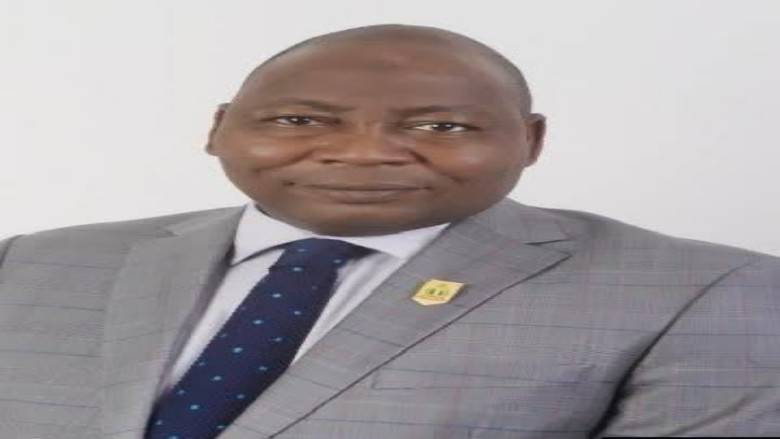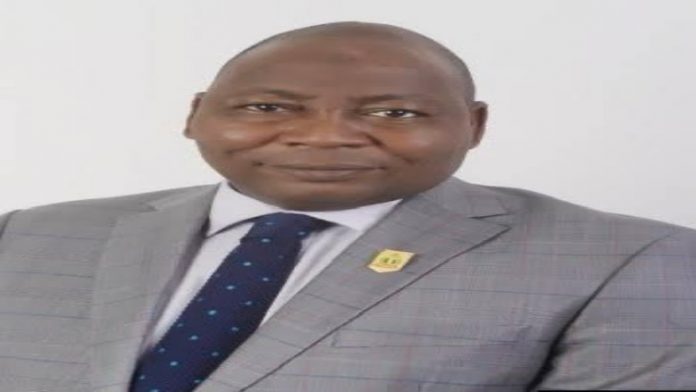By Brigadier General SK Usman (rtd) mni, fnipr, fspsp
Every July, the Nigerian Army marks another milestone in its remarkable history. This year, as we commemorate Nigerian Army Day Celebration (NADCEL) 2025, we celebrate an institution that has stood as a pillar of national unity, courage and nationhood for 162 years. The Nigerian Army Day Celebration, first held in 1978, is observed annually to commemorate the establishment of the Nigerian Army and marks the day the first shot was fired at Garkem Town, present-day Cross River State, signifying the commencement of Nigeria’s Civil War. This celebration also provides an opportunity to recognise and honour the heroic contributions of our officers and soldiers.
From its humble beginnings in 1863 with the formation of the Glover Hausa, the Nigerian Army has evolved into a formidable and professional force, standing guard over our sovereignty, defending our territorial integrity, and advancing our national interests across theatres of operation at home and abroad. This marks over a century and a half of selfless dedication to duty, patriotism, loyalty and commitment to protecting our families, friends, compatriots and above all, safeguarding the sovereignty and territorial integrity of our beloved country. The Nigerian Army has consistently risen to meet the challenges faced by successive generations. From its early involvement in the two World Wars, Nigerian soldiers have demonstrated courage and resilience.
Before the Nigerian Civil War, the Army not only safeguarded national unity but also extended its commitment to peace and stability beyond Nigeria’s borders. Nigerian troops played a vital role in the United Nations peacekeeping operation in the Congo in the early 1960s, one of the earliest and most complex missions of its kind. Since then, Nigeria has actively participated in numerous UN peacekeeping missions across the globe, becoming the fourth-largest troop-contributing nation to the United Nations at its peak. In addition to its UN commitments, the Nigerian Army has undertaken peacekeeping and peace enforcement missions under the auspices of the defunct Organisation of African Unity (OAU), now the African Union (AU), as well as the Economic Community of West African States (ECOWAS), thus bringing peace and democratic governance in some West African States, reinforcing Nigeria’s leadership role in promoting regional and continental peace and stability.
Therefore, to understand the essence of this celebration is to appreciate the weight of sacrifices that the gallant officers and soldiers of the Nigerian Army have borne over time. Their journey has not been paved with comfort. It is a legacy carved in hardship, blood, sweat, discipline and valour for over a century. Through civil war, peace enforcement missions, counterinsurgency operations and support to civil authority, the Army has remained steadfast, often operating under difficult and austere conditions, yet never relenting in its devotion and duty to the nation.

At a time when Nigeria faces a multitude of complex and asymmetric security threats, the Nigerian Army has continued to rise to the challenge. It is currently engaged in several internal security operations across the six geopolitical zones of the country, along with other services and security agencies. In the Northeast, Operation HADIN KAI has continued to make significant progress against Boko Haram and ISWAP terrorists, restoring peace and security in areas once controlled by insurgents. In the Northwest and North Central regions, Operations HADARIN DAJI, WHIRL PUNCH and WHIRL STROKE have consistently taken the battle to bandits, kidnappers and criminal gangs, dismantling camps, rescuing abductees, and restoring confidence in affected communities. In the South-South, Operation DELTA SAFE has protected critical oil infrastructure and curtailed illegal oil bunkering and piracy, thereby safeguarding the nation’s economic lifeline. In the Southeast and Southwest, Operation UDOKA, Exercises GOLDEN DAWN and STILL WATERS have continued to check rising threats of violent separatism, armed robbery and cultism, in collaboration with sister security agencies. Furthermore, the Nigerian Army remain steadfast in its efforts to ensure the security of the Nigerian people and the perpetuity of our democracy.
Beyond its core duty of defending Nigeria’s territorial integrity, the Nigerian Army plays an important role in aiding civil authority and national development. From disaster response—such as the recent support to flood-affected communities in Maiduguri—to nation-building initiatives, the Army remains actively engaged in improving the lives of Nigerians. Through its Civil-Military Cooperation (CIMIC) activities, it has constructed and rehabilitated roads, classrooms, health clinics and water projects across the country. The Army also provides educational materials to schools, conducts medical outreach programmes, and supports literacy and vocational development for youth and women in rural and conflict-affected areas. These initiatives serve not only to win hearts and minds but to demonstrate the Army’s deep commitment to national development, progress and human security.
These successes are not coincidental. They are the result of deliberate reforms, strategic foresight, and tenacious commitment by the leadership of the Nigerian Army, currently under the command of the seasoned Lieutenant General Olufemi Oluyede, mni NAM. Commendably, the theme of the Nigerian Army Day Celebration 2025, “Developing the Soldier First Concept: Imperative for Nigerian Army’s Transformation Drive,” was carefully selected as it espouses the Army’s renewed drive to transform the Army by placing the soldiers first.
As an instrument of national unity, integration and development, the Nigerian Army has made significant strides in innovation, research and development, civil-military relations, and technological advancement to better equip the soldier to carry out his constitutional responsibilities. Despite enormous constraints, ranging from budgetary limitations, overstretch, evolving threats and public misunderstanding, the Nigerian Army continues to wax stronger, reforming itself through enhanced training, operational innovation and welfare-driven leadership. It is transforming into a modern, agile and joint-capable force, one that reflects Nigeria’s aspirations in a volatile and dynamic security environment.
At the heart of this transformation is the Nigerian soldier, the courageous men and women who don the Army uniform, driven not by personal gain but by duty, loyalty, honour and patriotism. They leave behind the warmth of family and the promise of comfort to serve in harsh terrain and hostile conditions. Their reward is not always recognition, but they serve anyway. The Nigerian soldier represents the best of us: resilient, selfless and loyal to the very end. It is this silent dignity and unmatched devotion that make the Army not only a fighting force but a moral compass for national unity and integrity, thus worthy of celebrating.
As the Army celebrate its day this year, I congratulate them and urge all personnel of the Nigerian Army to remain resilient, disciplined and more committed than ever before. Nigerians respect and look up to the military as a symbol of national pride and must continue to live up to that honour. For the few bad eggs within the system, this is the time to buckle up, retrace your steps, or ship out; there is no room for mediocrity, disloyalty, or unprofessional conduct in the Army. To those aspiring to join this noble profession, understand that being a soldier is not a tea party; it is a sacred calling that demands toughness, integrity, courage and sacrifice.
Yet, even as we celebrate these gallant achievements, we must confront the reality of misinformation, public cynicism and unwarranted criticism that often clouds public perception of the military. Too often, the actions and intentions of the Nigerian Army are misunderstood, politicised, or misrepresented, even by those who owe their safety and liberty to its sacrifices. This is not only unfair, it is dangerous. When a nation maligns its protectors, it weakens its foundation. The Nigerian Army is not perfect, no institution is, but it is consistently loyal, committed and dependable. It deserves more than suspicion and cynicism. It deserves our support, trust and appreciation.
The government, on its part, must continue to equip, fund and enhance the welfare of the Army. Our political leadership must avoid creating unnecessary conflicts or internal friction that complicate national security. Instead, they must embrace dialogue, diplomacy and strategic communication as tools for conflict prevention and resolution, thereby reducing the burden on military engagement and allowing the Army to focus on core security missions.
To the Nigerian people, I make this earnest appeal: respect, support and celebrate your Army. This institution belongs to us all. When we collectively or individually honour it, we are affirming our commitment to Nigeria’s unity, stability and peace. Criticism, when necessary, should be constructive, not toxic. Let us uplift the morale of our troops through public solidarity and patriotic engagement. Let us tell our children and grandchildren not only the stories of Nigeria’s challenges but also the stories of courage, resilience, sacrifices and triumph represented by the Nigerian soldier.
The Nigerian Army remains the most reliable pillar in our national architecture. It has preserved our sovereignty, upheld our democracy and provided stability when institutions wavered. It is not just the pride of Nigeria; it is a model of endurance, discipline and sacrifice. As it celebrates 162 years of existence, it deserves more than fleeting praise. It deserves lasting gratitude from us all. The Nigerian Army Day Celebration provides an opportunity to showcase its achievements and deepen collaboration with various stakeholders towards enhancing peace, security and the defence of national values. It is for this reason that several activities have been lined up for this year’s celebration.
These include the traditional Juma’at Prayers and Interdenominational Church Services, symbolising the humble acknowledgement of the Nigerian Army motto, “Victory is from God Alone”. On Friday, July 4, 2025, there will be the commissioning of numerous civil-military cooperation projects in different locations within Kaduna State, a golf tournament, a free medical outreach programme, and the Nigerian Army Officers’ Wives Association (NAOWA)’s charity outreach programmes. On the same day, public speaking engagements and visits to selected secondary schools in all Nigerian Army formations will take place.
On Saturday, July 5, 2025, there will be a lecture at the Nigerian Defence Academy, Kaduna, to deliberate on topical issues, followed by the award ceremony for the 2nd COAS Annual Literary Competition. In the evening of the same day, a Gala Night with officers and soldiers will be held at Umaru Musa Yar’adua Conference Centre, Murtala Muhammed Square, Kaduna. The event will be rounded off with the Nigerian Army Day Celebration 2025 Grand Finale on July 6, 2025, featuring a military parade, equipment display and the presentation of the Chief of Army Staff Commendation Award to deserving personnel. One other key highlight of that day is also a Research, Development, and Innovation Exhibition, which will be held at Murtala Square to showcase the Nigerian Army’s remarkable strides in science, technology, and innovation, underscoring its transformation into a modern, adaptive, and forward-looking force.
To the gallant officers, men and women of the Nigerian Army, I salute you. You are our shield, our pride, and the living proof that service to the nation is noble and the highest form of patriotism. May your sacrifices never be in vain, and may the nation you defend stand eternally proud of your noble calling.
Happy NADCEL 2025 @ 162! Long live the Nigerian Army! Long live the Federal Republic of Nigeria!
The writer is a former Director of Army Public Relations and Spokesman for the Nigerian Army, a security and strategic communication expert. He can be reached on his social media handle @skusman.


